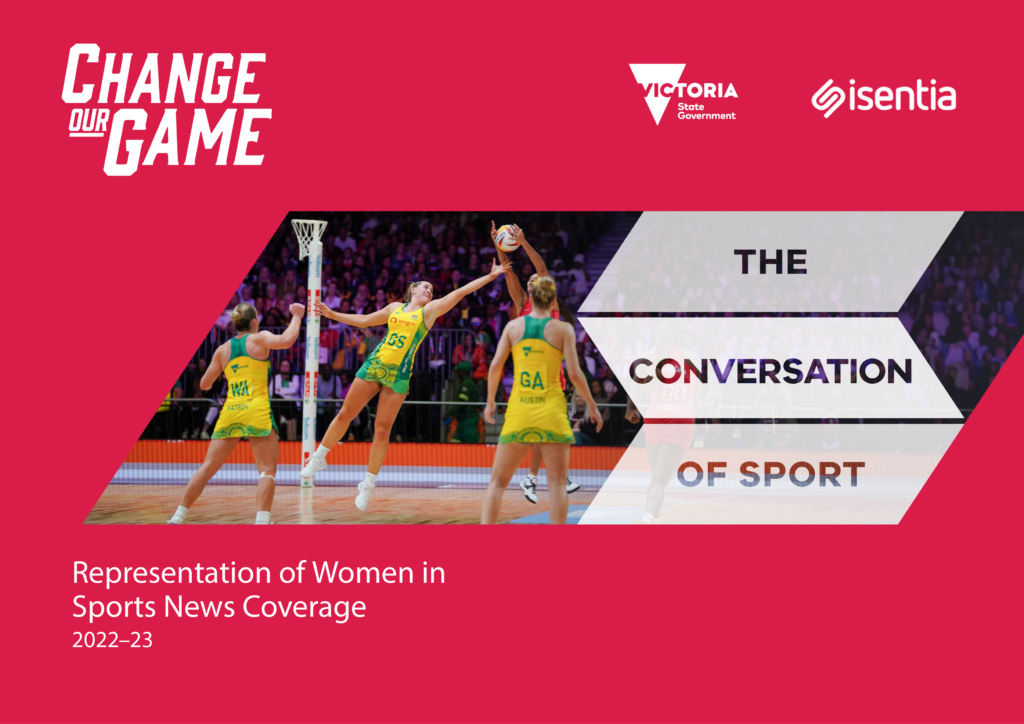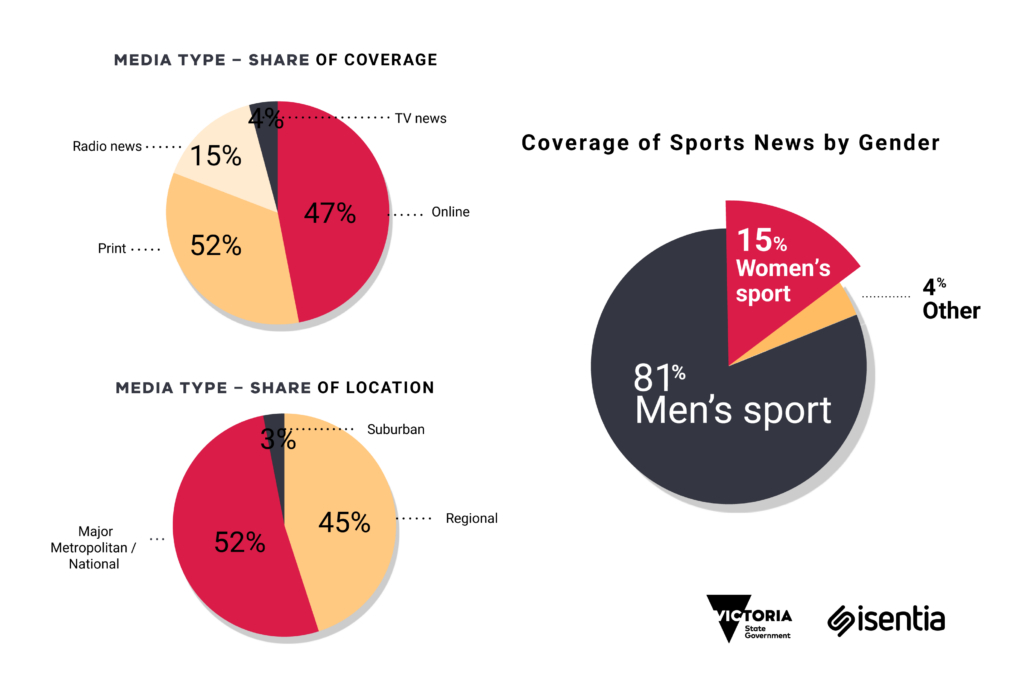Blog
The Eco-Spin Cycle: how brand’s sustainability claims come out in the wash
Regulators are cracking down on corporate greenwashing, but what does media discussion reveal about its impact on brand-consumer relations?

Isentia, a leading provider of media intelligence and analysis services, is proud to announce the launch of “The Conversation of Sport: Representation of Women in Sports News Coverage,” in partnership with the Office of Women in Sport and Recreation. This research aims to bring awareness to gender inequality in sports, and attention to address the underrepresentation of women in sports media.
The purpose of this research is to establish a baseline of the current coverage of women’s sport and women in sport in Victoria, providing crucial data to advocate for improved representation moving forward. Isentia’s expertise in media monitoring and analysis plays a pivotal role in gathering independent, transparent data to assess the current landscape accurately.
“Equal representation in sport is key in shaping the way we view the world…This research represents a key step forward in reducing the gap in coverage for women in sports news. It directly supports the media and sporting organisations with independent, transparent data of current performance in this space.,” said Ros Spence Minister for Community Sport
This research shows that the coverage of women’s sport in the media remains significantly lower than that of men’s sport, with only 15% of sports news coverage in Victoria focusing on women’s sport in 2022-23. Isentia’s collaboration with Change Our Game aims to highlight this disparity by empowering media outlets with the data and tools necessary to increase the visibility of women in sports news.

Isentia and its partners envision a future where strong representation of women in sports media contributes to the professionalisation of women’s elite sport, dismantles limiting stereotypes, and promotes inclusivity at both the elite and community sport levels. This collaboration sets the stage for a more equitable and diverse sports media landscape, where the stories and achievements of women athletes are celebrated, amplified and contribute to a stronger ecosystem for women’s sport.
“Through our partnership with OWSR, we are hopeful that this research will shine a light on the current state of play of sports news, and the impact this can have on the support and participation in women’s sport. While the findings are confronting, having this baseline will help drive positive change.” said Ngaire Crawford for Director of Insights and Research, Isentia.
“We believe that by working together, we can drive meaningful change and create a more inclusive sporting environment for women and girls everywhere.”
Through our partnership with Change Our Game and the Victorian Government, we hope to pave the way for a future where women in sport are celebrated and recognized on equal footing with their male counterparts in the media. By increasing the visibility and representation of women in sports media, we aim to inspire the next generation of athletes, journalists and content creators and drive positive change towards a more inclusive and equitable sporting landscape. Together, we can create a world where every athlete, regardless of gender, has the opportunity to thrive and succeed.
Change Our Game is an initiative by the Victorian Government aimed at achieving gender equality in sport and active recreation. Through advocacy, funding, and partnerships, Change Our Game works to address systemic barriers and promote inclusivity and diversity across all levels of sport.
Isentia is a leading provider of media intelligence and analysis services, helping organisations make informed decisions based on actionable insights from media data. With a comprehensive suite of solutions, including media monitoring, analysis, and insights, Isentia empowers clients to stay ahead in an ever-evolving media landscape.
Loren is an experienced marketing professional who translates data and insights using Isentia solutions into trends and research, bringing clients closer to the benefits of audience intelligence. Loren thrives on introducing the groundbreaking ways in which data and insights can help a brand or organisation, enabling them to exceed their strategic objectives and goals.
Get in touch or request a demo.